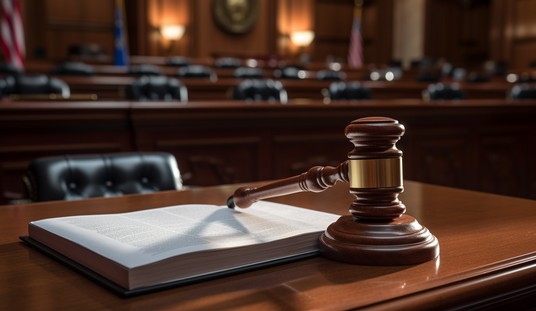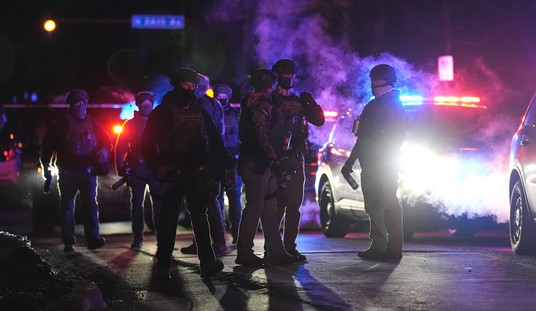=========
=========
Promoted from the diaries by streiff. Promotion does not imply endorsement.
=========
=========

On Monday, the United States Supreme Court announced five decisions in addition to two the previous Thursday. They also handed down decisions this Thursday and yesterday. Last Thursday, in the Mansky case, the Court struck down a Minnesota law that prohibited the wearing of politically-charged buttons and apparel in polling places. The decision was 7-2 with Roberts the author. Arguing the law was designed to create an orderly polling place, the Court decided that as written, it was too vague and therefore violated the First Amendment’s Free Speech Clause. However, they noted that other states like both California and Texas have laws regarding the wearing of political apparel in polling places and left the door open to allow Minnesota to be more specific as to what can or cannot be worn.
In another case decided that Thursday, the Court ruled 9-0 that a court determining foreign law should afford consideration to a foreign government’s argument and submission, but any court is not bound to afford that argument or submission any greater weight in determining an outcome.
Of course, the big news on Monday was the Court punting on the political gerrymandering cases. In the Gill case out of Wisconsin, the Court ruled that there was no Article III standing, thus putting the ball back in the Wisconsin courts. Instead of a blanket decision, the respondents must now likely have to prove electoral harm on a district-by-district basis, which is logistically more troublesome and more expensive.
The Court had not heard a political gerrymandering case since 2004 when they decided that the question was better left to the legislative and political process than the courts. The reason was there was no viable alternative of determining whether the drawing of district lines was intentional or a quirk of demographics. The plaintiffs in this original case thought they had the statistical smoking gun. In that 2004 case, it was stated that the day may come when irrefutable proof and a standard can be imposed. The Court, in Gill, sidestepped that issue. However, in her concurrence, Justice Kagan noted that although she agreed with Roberts on the issue of standing (the case was decided 9-0), she suggested the days of political gerrymandering may be numbered.
However, the deafening of silence by Justice Kennedy on either side of the issue- he joined Roberts’ opinion in full- should give the liberals on the Court cause for worry. During oral argument, he at times seemed unconvinced by the statistical analysis. This decision was certainly a blow to the Left as they were relying on a favorable decision that could have seriously altered the political landscape.
In a related case, Benisek vs. Lamone, the Court in a per curiam decision announced that the district court did not abuse its discretion in denying an injunction whose plaintiffs complained that a particular Maryland Congressional district was gerrymandered in retaliation for their political views.
In the Rosales- Mireles case, the Court in a 7-2 decision determined that if a miscalculation of the Federal guidelines sentencing range is plain and affects a defendant’s rights it can be considered by an appeals court to vacate the original sentence. In a more contentious 5-3 decision regarding sentences, the case of Chavez-Meza determined that because a judge had a reasoned basis for his decision, the judge’s explanation for reducing a defendant’s sentence to the middle of the range rather than the bottom of an amended range was adequate. Sotomayor and Kagan joined Kennedy in dissent. That dissent seemed more against the actual paper form used to justify the sentence arguing that it gave defendants little reason for the sentence they received.
Finally on Monday, in the Lozman case, the Court (8-1, Thomas dissenting) ruled that the existence of probable cause for an arrest over disrupting a city council meeting did not bar the petitioner from following through on a lawsuit against the city for violating his First Amendment rights. However, the Court went out of its way given the specifics of this case noting that city council members had discussed having the defendant arrested and taken from chambers prior to the alleged disruption. Thomas argued that the mere presence of probable cause negated Lozman’s entire argument.
On Thursday, four cases were decided. Most eyes were on the Wayfair decision involving the collection and remittance of state sales taxes on Internet purchases. As expected, Kennedy had the majority decision since he previously suggested the issue should be reconsidered in light of burgeoning Internet commerce. Roberts dissented joined by Breyer, Kagan and Sotomayor. {NOTE: A more detailed analysis of this case is forthcoming}
In Pereira vs. Sessions, the court- in an 8-1 decision with Alito dissenting (more on that in a moment)- ruled that so-called “stop clock” provision in deportation proceedings had to be specific with respect to the time and date and location of an “Order to appear” notification in immigration cases. Alito’s dissent centered around the so-called Chevron deference that affords leniency to administrative agencies in how they interpret statutes and implement them.
In a 5-4 decision dating back to interpretation of a 1937 law, the Court with the conservative majority plus Kennedy holding firm decided that employee stock options are NOT taxable income under the Railroad Retirement Tax Act of 1937. Does this mean that railroads are the new tax shelter?
In a 7-2 decision authored by Kagan, the Court in the Lucia case decided that when the SEC appoints administrative law judges to cases, they are “officers of the United States” subject to the Constitution’s Appointments Clause. The ramifications of this decision will be discussed in a later article.
Finally, yesterday the Court decided that patent holders whose patents are infringed upon may sue for profits lost from overseas even though the patented parts may have been made domestically. They also ruled that simultaneous service on two military courts does not violate the dual-officeholder ban.
In the Currier decision, the Court ruled that when a defendant severs charges into different trials, prevails on the basic charge, but not charges incidental to the original charge does not violate the Double Jeopardy Clause. In this case, Currier was accused of breaking and entering, grand larceny and being a convicted felon in possession of a firearm. He severed the latter charge from the first two. He was acquitted on those charges. However, the Court determined that the latter charge, although discovered when arrested for the first charges, was distinct and unique despite his innocence on the other charges.
Finally, in the Carpenter decision where Roberts joined the four liberals, he wrote a very carefully worded opinion that during an investigation, law enforcement must first obtain a search warrant to track a person’s cell phone. In this case, Carpenter was the subject of a series of armed robberies. The police used his cell phone records to prove he was in the vicinity of those robberies when they happened. In the opinion, which elicited the rarity of four dissenting opinions, Roberts made sure to distinguish that exigent circumstances may dictate not obtaining a warrant if the search is in real time. He also said it did not necessarily refer to national security investigations. This is another decision where the Supreme Court has waded into and, quite frankly, bolstered the Fourth Amendment.
For the record, as the Court enters its final week, there are 6 outstanding cases to be decided- two of huge importance.












Join the conversation as a VIP Member